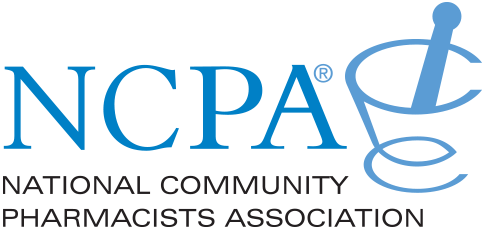
NCPA: Any Pharma Tariffs Should Be Tailored to Avoid Increasing Shortages and Costs

Key Takeaways
- NCPA supports U.S. pharmaceutical manufacturing but warns tariffs could harm patients and independent pharmacies by causing shortages and increased costs.
- Pharmacies face challenges as drug wholesalers may pass tariff-induced cost increases, while PBMs control patient costs and pharmacy reimbursements.
ALEXANDRIA, Va. (May 8, 2025) – While supportive of the overarching goal of bringing pharmaceutical manufacturing back to the United States, the National Community Pharmacists Association is urging the Trump administration to ensure any tariffs on the pharmaceutical sector are carefully tailored to avoid further strain on patients and independently owned community and long-term care pharmacies. In comments to the Department of Commerce this week, NCPA expressed specific concern that these tariffs could trigger shortages in the near term and, just as dangerous, force independent pharmacies to absorb higher costs.
Pharmacies procure their pharmaceuticals from drug wholesalers, who will likely pass on any increase in the price of pharmaceuticals caused by tariffs. At the same time, wrote Steve Postal, JD, NCPA senior director of policy and regulatory affairs, “pharmacies are unable to pass these increased costs to patients, as pharmacy benefit managers (PBMs) determine out-of-pocket costs for patients and dictate pharmacy reimbursement for the dispensing of medications. Should pharmaceutical tariffs be enacted, it is imperative that the administration require PBMs to adjust reimbursements to pharmacies within 24 hours of price increases to account for increased drug acquisition costs should tariffs go into effect.”
NCPA is urging the Trump administration to establish certain exclusions from any tariffs, incentivize U.S. manufacturing through supportive domestic and trade policies, and reform the PBM payment model to strengthen domestic supply chains and reimburse pharmacies fairly.
To read Postal’s comments on behalf of NCPA,
“Our country’s national security is at risk by being so reliant on foreign sources for vital prescription drug ingredients. For community pharmacies, however, there’s no margin left for them to absorb increased prices that may result from pharmaceutical tariffs,” says NCPA CEO B. Douglas Hoey, pharmacist, MBA, in a statement. “Unless the federal government ensures that PBM pharmacy reimbursements are increased to reflect higher costs, the ripple effect of tariffs could be fewer pharmacies, stranded patients, and inadequate pharmacy networks for Medicare and Medicaid.”
Founded in 1898, the National Community Pharmacists Association is the voice for the community pharmacist, representing over 18,900 pharmacies that employ more than 205,000 individuals nationwide. Community pharmacies are rooted in the communities where they are located and are among America's most accessible health care providers. To learn more, visit
Newsletter
Stay informed on drug updates, treatment guidelines, and pharmacy practice trends—subscribe to Pharmacy Times for weekly clinical insights.





















